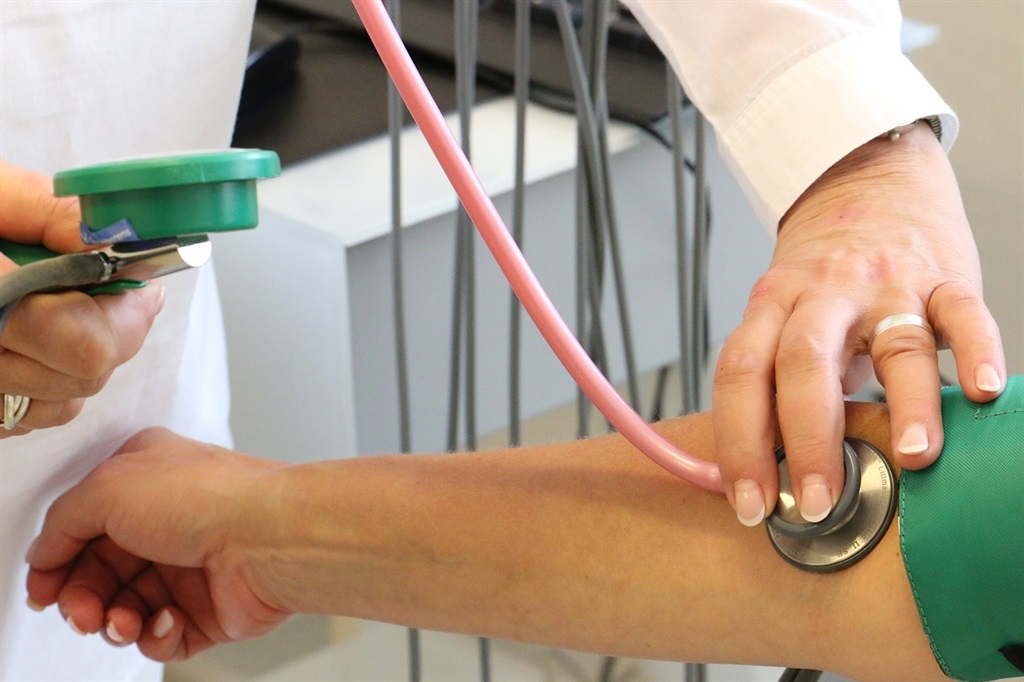
Heart Awareness Month (HAM), is a health campaign initiated and driven by the Heart and Stroke Foundation South Africa (HSFSA) and is commemorated every year during the month of September.
The HAM campaign focuses on heart health and the associated modifiable and unmodifiable risk factors ranging from genetic predisposition to unhealthy behaviors, such as tobacco smoking and a lack of physical activity.
Unfortunately, in South Africa, heart disease and strokes have the highest burden of disease within the cluster of non-communicable diseases (NCDs). NCDs include conditions such as cardiovascular disease (CVD), diabetes, and cancer.
During HAM, the Foundation’s primary target is the South African public.
Due to social media, their webinars, and collaboration with regional and global organizations, their campaign reach goes beyond the borders of SA.
The HAM campaign’s amplification is to drive down the CVD burden, promote health and prevent disease onset.
Globally, World Heart Day (WHD) is activated on September 29 and the Foundation has many activities in community-based settings in the provinces of Kwa-Zulu Natal, Western Cape, Eastern Cape, and Gauteng on this day.
The balance of provinces benefit through their social media, TV, and radio outreach.
Throughout the month of September the Foundation’s health care practitioners also provide health talks and health risk assessments (HRAs).
The World Heart Federation (WHF) works with its country members to amplify the health messaging about the different types of heart disease and the ideal treatment modalities.
The HSFSA is a member of the WHF and as such aligns with the 2023 global theme, ‘Use Heart, Know Heart’ which essentially translates into encouraging individuals and communities to get a deeper understanding of how to maintain good heart health.
The World Health Organisation (WHO) report of 2021, states that CVD carries the largest burden of disease, resulting in 17.9 million deaths annually, which represents 32 percent of all global deaths.
It is estimated that 75 percent of CVD occurs in low- and middle-income countries (LMICs).
In SA, CVD is responsible for almost one in six deaths, claiming more lives than that of all the various types of cancers combined.
Every day, 225 South Africans die from heart disease and strokes and is the second leading cause of mortality in the country.
During HAM, the Foundation will utilize the week-on-week themes conceptualized by the CEO.
The population at large are reminded about the risk factors for heart disease and strokes which include hypertension, raised cholesterol, diabetes, tobacco smoking and vaping, lack of good nutrition and poor exercise routines and excessive alcohol consumption.
This year the sub-themes for each week are as follows: Week one’s theme is Young Hearts; week two’s theme is Mature Hearts; week three’s theme is Hypertension and Diabetes (two important drivers of CVD) and week four’s theme is Cumulative Risk.
Week 1: Young Hearts
Detecting cardiovascular risks in children can prevent CVDs in adulthood.
Non-modifiable risk factors in our young hearts include genetic factors such as congenital heart diseases and a family history of hypercholesterolemia.
Modifiable factors include increased Body Mass Index, high blood pressure, high blood cholesterol, high levels of blood triglycerides (levels of fat in the blood) and smoking habits in older children.
Other preventable diseases like Rheumatic Fever, which are brought on by untreated streptococcal infections, can lead to heart disease known as Rheumatic Heart Disease (RHD).
The campaign messaging is targeted to young people and care-givers, including parents.
A key focus area will be on behavioral strategies that can be implemented to ensure young people remain in good health and learn to self-manage to prevent heart disease and strokes.
In 2017 the Foundation launched its flagship programme called the School Health Promotion Initiative (SHPI) which reaches young South Africans at a public-school level to make them aware of the benefits of living a healthy lifestyle (including diet, physical activity and zero smoking and /or vaping) and encouraging the spread of knowledge to their parents.
This programme is even more relevant given that the prevalence of childhood obesity is increasing rapidly worldwide.
South Africa was recently listed as one of the countries projected to have the highest number of children with obesity by 2025.
Week 2: Mature Hearts
Age is an uncontrolled risk factor for heart disease which becomes more likely as individuals get older.
In older people there is an increased prevalence of atherosclerosis, stroke and myocardial infarction.
Gender also plays an important role with perimenopausal, menopausal and postmenopausal women being at higher risk for CVD onset.
While heart disease becomes more likely with age, modifiable risk factors that individuals have the power to change include, diet, physical activity, stress management, avoiding alcohol and zero smoking and/or vaping. Even small improvements can make a big difference to health outcomes.
The Foundation plays a significant role in empowering individuals and will therefore, facilitate deeper knowledge about how people can get access to care for treatment and prevention, especially in primary care settings.
They aim to address these key preventative and empowering messages through their various programmes, such as their Mended Heart and Stroke Group Meetings.
Week 3: Hypertension and Diabetes
Two significant risk factors for heart disease, namely, hypertension and diabetes are also categorized as NCDs.
South Africa's National Strategic Plan (NSP) 2022-2027 for the prevention and control of NCDs is an attempt to address the United Nations Sustainable Development Goal which aims to reduce premature mortality from NCDs through prevention and treatment and promote mental health and well-being by the year 2030.
Hypertension and diabetes have been targeted as two medical conditions that will receive attention for detection, treatment and care.
CEO Prof Pamela Naidoo, has been involved in the development and finalization of the NSP and states that the HSFSA aligns itself with the NSP through its pillars of work, namely, nutrition, health promotion, advocacy, and health policy.
The CEO, and the Health Promotion and Nutrition Team would like to see screening and management guidelines used consistently across SA in order to reduce the burden of NCD risk factors.
Uncontrolled high blood pressure can lead to heart attacks and strokes. It is known as the silent killer as there are no signs to warn that one’s blood pressure is high.
The condition can be prevented by adopting simple health-seeking behavior changes such as eating a healthy, balanced diet which is low in salt and rich in fruits, vegetables, plant proteins and whole grains, getting active, acknowledging mental distress, avoiding alcohol and not smoking and/or vaping.
It is also important to adhere to any medications prescribed to manage hypertension.
Diabetes is a condition that occurs when the levels of glucose (sugar) in the body are too high, either because the body doesn’t produce enough insulin or the body doesn’t use the insulin it produces, effectively.
The constant high blood sugar causes damage and narrowing of the blood vessels, increased blood triglycerides (a type of fat), decreased levels of “good” HDL cholesterol, high blood pressure and increased risk of a heart attack or stroke.
Diabetes can be managed by a healthy, balanced and carefully portioned diet in combination with exercise.
Week 4: Cumulative Risk
In the build-up to WHD 2023, the Foundation aims to have an impact on knowledge dissemination about the cumulative risk for heart disease.
As an organization that’s 43 years old, they intend to remain relevant in order to dramatically reduce the burden of CVD, despite on-going challenges such as comorbidities, multi-morbidities and other extenuating factors such as air pollution and climate change.
While there are many known risks for CVD onset, there is emerging evidence on the effects of climate change on cardiovascular health.
Exposure to hot temperatures, especially for older people may result in poor CVD health outcomes linked with a warming climate. Climate change, particularly global warming affects the four pillars of food security; availability, accessibility, utilization and affordability exposing people to extreme hunger.
In this way, it “robs” individuals of one of the basic and fundamental rights to food and ultimately heart and brain health.
Given the impact of climate change on food quality, the HSFSA encourages people to consume and learn more about their Heart Mark products to ensure a balanced diet.
Hayley Cimring, Nutrition Science Team Leader adds, “Knowing how to read your food labels is very valuable and can be used as a low-cost tool to assist in reaching the goal of preventing NCDs such as obesity, heart disease, strokes, hypertension cancers and to generally promote good health.”
Pollution is another factor known to increase CVD risk.
According to the WHF, air and environmental pollution is said to be the fourth highest ranking risk for CVD.
The heart and the vascular system is highly vulnerable to a number of environmental agents and air pollution is an invisible killer affecting both the young and the old, causing deaths from heart attacks, strokes, lung disease and cancer.
Tobacco and e-cigarettes are highly addictive and also contribute to air and environmental pollution, resulting in poor health outcomes.
The Foundation therefore, supports the proposed Bill for tobacco and electronic devices legislation and will mobilize with their consortium partners to get the Bill passed into law.
The toll of tobacco, according to Campaign for Tobacco-Free Kids (2023) is that over 39 000 South Africans die from tobacco-related diseases each year.
About 10 percent of male deaths and 5 percent of female deaths are caused by tobacco (7.5 percent overall). Over 13 percent of non-communicable disease-related deaths (eg: ischemic heart disease, stroke, diabetes, lung cancer, etc.) in SA, are attributable to tobacco use.
The Foundation’s campaign messaging around cumulative risk is the imparting of knowledge about the impact of known risk factors for CVD already mentioned, combined with the effects of climate change, pollution and co-existing conditions, including HIV and TB.
The combination of risk may lead to very poor heart health outcomes.
Naidoo states that, “As the only health NGO in SA with a focus on CVD and its known risk factors, the HSFSA will continue to mobilize towards pro-CVD health policies, public engagement and national and international collaborations to reduce the prevalence and incidence of heart disease and strokes.”
For more information visit www.heartfoundation.co.za, the Foundation’s Facebook page www.facebook.com/HeartStrokeSA and Twitter account www.twitter.com/SAHeartStroke.




 Publications
Publications
 Partners
Partners
























